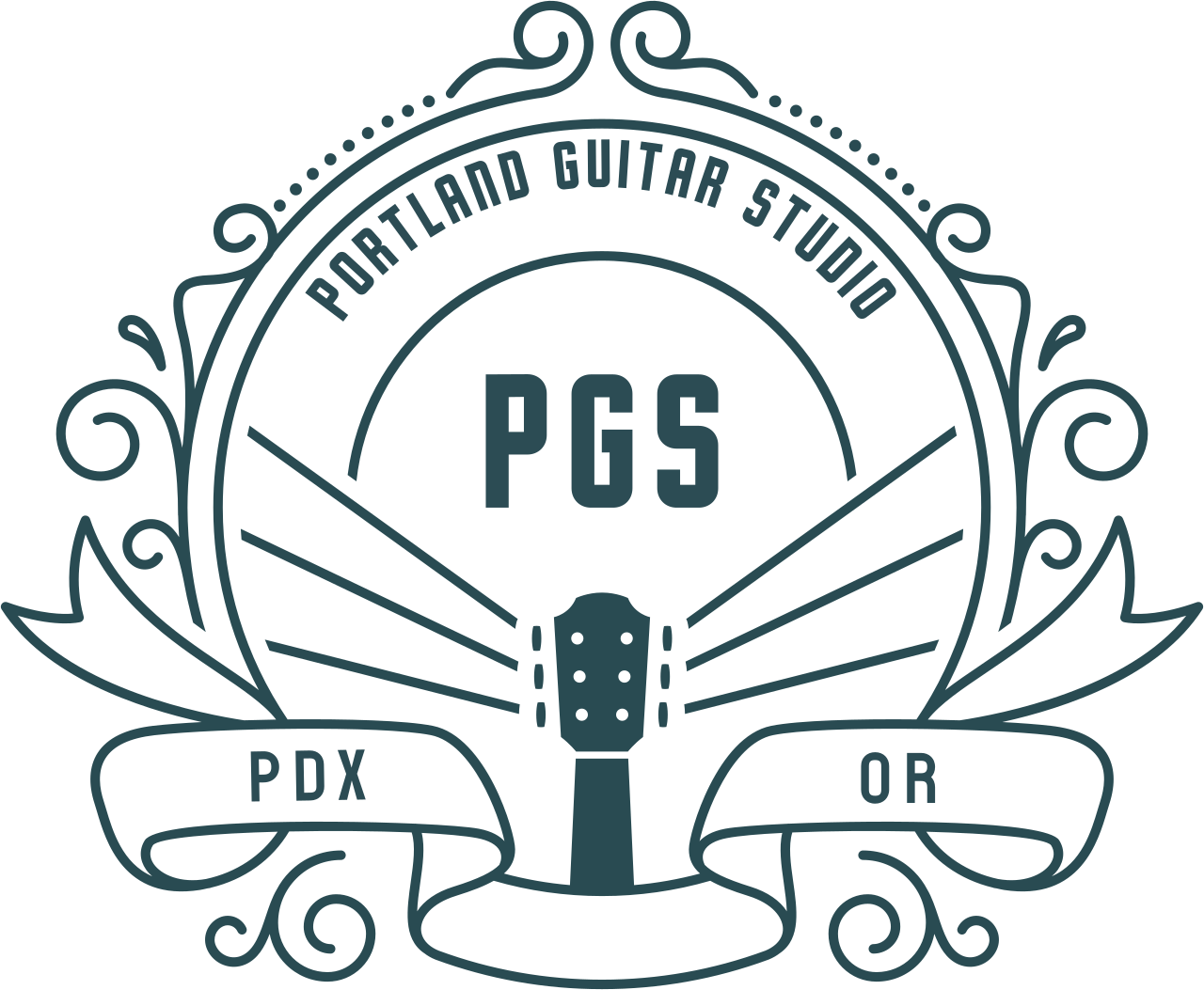Frequently Asked Questions
Do I need to have my own guitar?
Yes. Practicing at home regularly is a must in order to have success with playing guitar. We are lucky these days with the many affordable quality options available. I am always happy to make a recommendation(s) to help narrow the search.
What type of guitar should I start with?
I recommend that each student choose the guitar type that interests them most. Electric guitars are a bit easier to play, but of course, require an amp. Acoustic guitars are a bit tougher on the fingers but that is quickly overcome with practice. Classical guitars have nylon strings and a wider neck. These are typically used for finger-style playing (i.e. classical, flamenco).
What style/size of pick should I use?
A standard shaped pick will suffice. Starting with a light to medium gauge (0.5 - 0.75 mm) is ideal for beginners. As you progress through lessons, experiment with different shapes, thickness, material, etc.
What guitar brand should I get?
This is not important, especially if you’re just beginning. If you like the guitar and it sounds great, then you are good to go. Some of my favorite personal experiences have been playing pawnshop guitars that don’t have name on the headstock. There are so many options available. Some trusted names are Fender, Gibson, Taylor, Seagull, Ibanez, Gretsch, Breedlove, Yamaha, etc. The most important thing is that the guitar fits your body size.
How often should I practice?
To start out, have fun and don't overthink it. Once you have enough material, I recommend 3 separate 30 minute practice sessions per week. Your practice will increase as your enjoyment of playing grows. If you are just starting out, be careful and don't burn yourself out by practicing too much. I believe it is important to acknowledge and celebrate each improvement to maintain motivation. Learning guitar presents some challenges, but mindful practice and acknowledgement of success will help you become the guitarist you want to be.
What if I didn't have time to practice before my lesson?
That is OK. Come to your lesson and we will pick up where we left off. It is better to reinforce material than to not attend. You will not be wasting your or my time and we will have plenty of material to discuss and work on.
What is a great method for practicing?
Have set days and times for your practice. Have a goal for each practice session. Set a timer (10 minutes - 30 minutes - 1 hour) and when the time is up, move on with the rest of your day. Focus on specific concepts instead of trying to plow through everything each practice session.
What does it mean to "hit a wall"?
There are tons of ideas/techniques to learn on guitar. Everyone will have a moment when they think it is too hard for them. This is not true. It just takes a great attitude, persistence and patience. It takes time to absorb techniques and feel comfortable with them, so rest assured, your hard work is paying off in real time.
If you could only give one tip to your students, what would it be?
Have patience and leave your ego at the door. Guitar is tougher than it seems and it is easy to trick yourself into having unrealistic expectations. Just stick with it, acknowledge your improvements along the way and enjoy the process, and you will soon be rewarded with a lifetime of enjoyment. Oh, and PRACTICE! (That is more like 3 tips. Oops!)
What genre of music is the best to learn?
Simply put, the best music to learn is the music that you enjoy the most. Guitar will expose you to many different genres and styles along the way, so feel free to get out of your comfort zone as well.
Is it important to learn to read music?
The ability to read music is empowering, but it is not mandatory to be able to play the guitar. It can put any music at your fingertips. It teaches you a lot about how music is created as well as unlocks the guitar's. While it is very valuable to learn, keep in mind that will be a part of your practice time. If you WANT to do it, then make it a part of your lessons. On the other hand, if you think you're supposed to do it but not sure if you're interested, hold off on making that decision. You can always add it at any point.
Do you offer online lessons?
Yes! Online lessons are taught through Zoom (which is free) and can be equally as effective as in-person lessons. Email to get recommendations on equipment for online lessons.
Is learning guitar easy?
There is a lot that goes into music and the guitar is a very dynamic instrument with many possibilities. There are easy concepts to learn, as well as intermediate and advanced concepts. It depends on what you hope to accomplish. If you put the practice time in, you will be successful without a doubt. I make sure I give my students level-appropriate material and I also expose them to many varied concepts. The key? Practice, be curious, explore and enjoy the journey!
What is guitar tablature (TAB)?
A modified system of "reading" notes that is specific to the guitar. There are 6 lines (strings) and the numbers on the lines represent the fret numbers. TAB has its limits but it is very useful, and is a great way to put a ton of music at your fingertips. Depending on what style you are learning, you might see more or less TAB.
